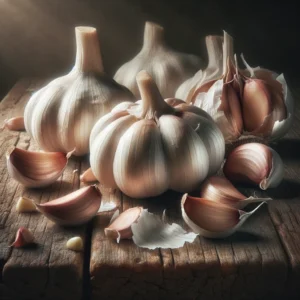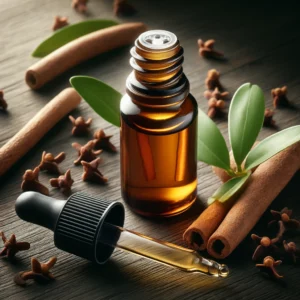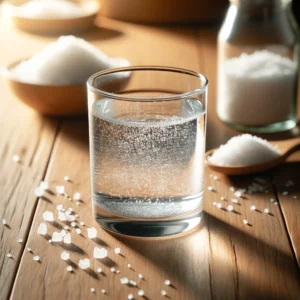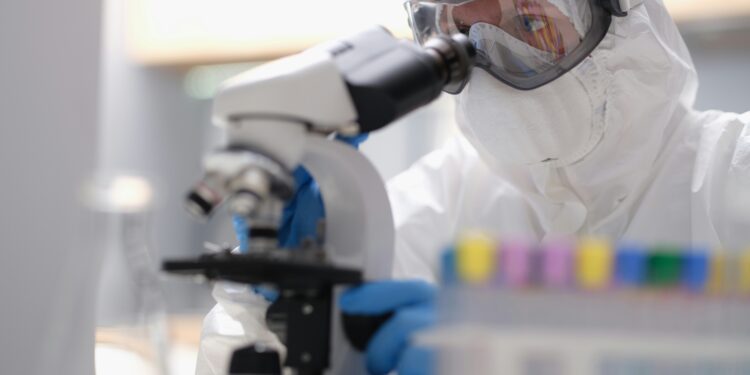Introduction to Natural Antibiotics and New Antibiotics
Natural antibiotics have been used for centuries to fight bacterial infections. However, with the rise of drug-resistant bacteria, the need for new antibiotics is more crucial than ever. Pharmaceutical companies face challenges in investing in new antibiotics due to the poor return on investment compared to drugs that treat chronic conditions. The development of new antibiotics faces significant hurdles due to heavy regulations and a limited market, making it a less attractive investment.
What is the strongest natural antibiotic for tooth infection?
Tooth infections often drive people to seek out non-pharmaceutical remedies due to the discomfort and pain they cause. Natural antibiotics offer a compelling alternative, promising effective relief with minimal side effects. These remedies can be used as both a primary treatment and a supplementary aid alongside conventional medical approaches. Below, we explore the best natural antibiotics for treating tooth infections, highlighting their application methods, optimal usage times, and reasons for their efficacy.
1. Garlic: The Antibacterial Powerhouse Garlic is prized for its allicin content, which gives it powerful antibacterial and antifungal properties. Applying crushed or finely chopped garlic directly to the infected area can quickly reduce bacterial activity and alleviate pain. For best results, use garlic at the first sign of discomfort to prevent the spread of infection. Its natural potency makes it one of the strongest natural antibiotics for a tooth infection.

2. Clove Oil: The Traditional Dental Remedy Clove oil, rich in eugenol, acts as a natural antiseptic that helps sterilize the infected area and reduce inflammation. Applying a small amount of clove oil on a cotton ball to the affected tooth can provide instant pain relief. It is most effective when used as soon as pain is noticed, ensuring that the infection doesn’t worsen.

3. Turmeric: Anti-inflammatory and Antimicrobial Turmeric’s active ingredient, curcumin, is known for its anti-inflammatory and antimicrobial effects. Making a paste of turmeric powder and water and applying it to the tooth can decrease inflammation and control bacterial growth. Apply this paste twice daily to maximize its soothing and antibacterial effects.

4. Salt Water: The Simplest Solution A salt water rinse is an easily accessible and highly effective antiseptic method. Dissolving a teaspoon of salt in warm water and rinsing the mouth several times a day can cleanse the infection site and reduce discomfort. Regular use throughout the day, especially after meals, helps maintain oral hygiene and prevent bacterial build-up.

5. Oregano Oil: Effective Against Broad-Spectrum Bacteria Oregano oil contains carvacrol, a potent antibacterial agent effective against a wide array of bacteria. Diluting oregano oil with a carrier oil like coconut and applying it to the gums, or using it in a mouth rinse, can significantly improve oral health and combat infections. For acute infections, apply oregano oil three times daily for rapid relief.

How long will it take for antibiotics to work?
The effectiveness and the time it takes for antibiotics to work can vary depending on the type of infection and the specific drug used. New antibiotics are designed to act quickly, but visible improvement in symptoms can take anywhere from one to three days. It’s crucial to complete the full course of treatment as prescribed to fully eradicate the infection and prevent the development of resistance.
The Importance of Investing in Antibiotic Development
The recent COVID-19 pandemic underscored the need for effective antibiotics, especially for patients with secondary bacterial infections. Without new antibiotics, we risk a future where common infections could become untreatable, leading to higher mortality rates and increased healthcare costs. To counteract this, a collective effort from governments, pharmaceutical companies, and healthcare providers is necessary. Incentives for developing new antibiotics, streamlined regulatory processes, and promoting responsible use of antibiotics can help address this critical public health issue.
Can you drink alcohol and take antibiotics?
It’s generally advised to avoid drinking alcohol while taking antibiotics. Here are a few reasons why:
- Increased Side Effects: Alcohol can increase the side effects of antibiotics, such as stomach upset, dizziness, and drowsiness, which can impair your ability to perform tasks that require alertness, like driving.
- Decreased Effectiveness: In some cases, alcohol can interfere with the effectiveness of the antibiotic. This interference can inhibit your body’s ability to fully absorb the medication, potentially leading to a longer infection duration or incomplete treatment.
- Additional Liver Stress: Both alcohol and some antibiotics are metabolized in the liver. Consuming alcohol while taking antibiotics can increase the liver’s workload, potentially leading to liver damage or impaired liver function.
- Risk of Severe Reactions: With some antibiotics, such as metronidazole or tinidazole, drinking alcohol can cause a severe reaction including rapid heartbeat, redness of the skin, nausea, and vomiting.
Conclusion
Addressing the investment challenges in antibiotic development is vital for ensuring that effective treatments for bacterial infections remain available. Collaborative efforts to incentivize new antibiotic development and to promote responsible antibiotic usage are essential steps towards maintaining public health safety.For more detailed information on public health initiatives and how you can contribute to antibiotic stewardship visit this link.















